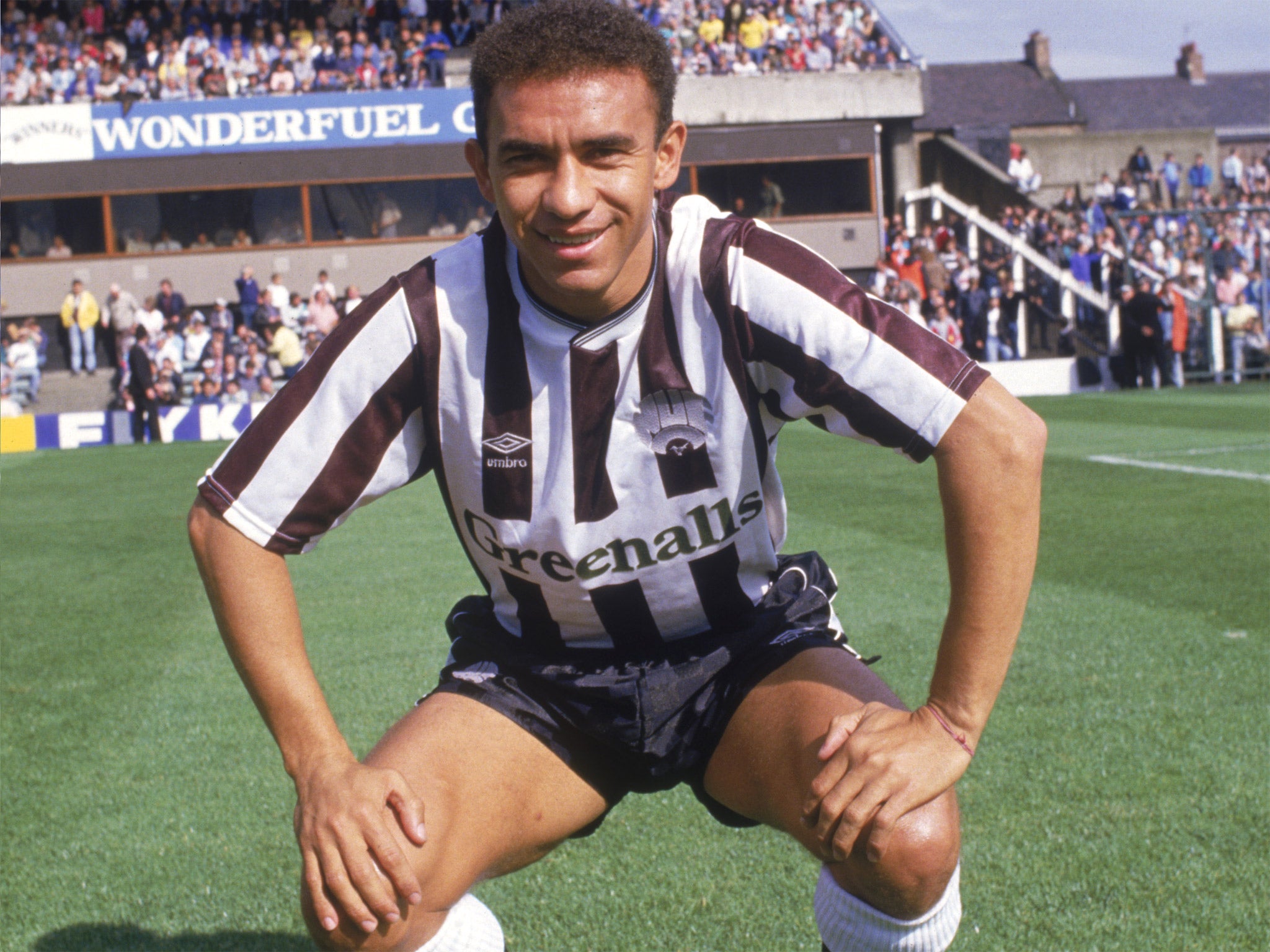World Cup 2014: 'Horrible' Manaus heat will leave England praying for rain when they play Italy
Former Newcastle striker Mirandinha tells Ian Herbert of stifling conditions in venue for England’s World Cup opener

Your support helps us to tell the story
From reproductive rights to climate change to Big Tech, The Independent is on the ground when the story is developing. Whether it's investigating the financials of Elon Musk's pro-Trump PAC or producing our latest documentary, 'The A Word', which shines a light on the American women fighting for reproductive rights, we know how important it is to parse out the facts from the messaging.
At such a critical moment in US history, we need reporters on the ground. Your donation allows us to keep sending journalists to speak to both sides of the story.
The Independent is trusted by Americans across the entire political spectrum. And unlike many other quality news outlets, we choose not to lock Americans out of our reporting and analysis with paywalls. We believe quality journalism should be available to everyone, paid for by those who can afford it.
Your support makes all the difference.Take Mirandinha’s word for it: England are going to struggle to acclimatise to the Amazonian heat which had the on-board temperature gauge reading a full 22C in the coach which pulled The Independent into Manaus at 2am this week.
The 54-year-old Brazilian knows all about adjustment, having been the first player from his nation to brave English football – and Newcastle at that, in 1987 – yet nothing compared with the humidity and heat the striker experienced when he played here during his nine years in Brazilian club football. It was the lack of wind which always got him, he says. It was “horrible,” he reflects, and just as much of a struggle as the early weeks of the Tyneside years when he “couldn’t feel the fingers and toes”.
Even when the temperature dips at 6pm – kick-off time here for England against Italy – it feels like a walk in a bath of warm air. England are wise to acclimatise in Miami – “it’s the same in our city”, says one Florida resident, who is in Manaus to make his own investigations into playing football in the Amazon. But Mirandinha’s belief that Roy Hodgson’s young players will be fine “because they are young” seems optimistic.
It won’t be a cauldron in every way. The stadium England’s players will walk into is of a more modest capacity – 44,500 – than suggested by the dramatic exterior, which when illuminated for their match on 14 June will resemble Bayern Munich’s Allianz Arena.
The relatively small capacity – 20,000 less than the refurbished Fortaleza stadium to the east – owes something to the fact that this is one of the Brazil venues which lacks a huge football-going culture. There were only 1,000 fans for one of the test games. Also, the dugout seats are benches that wouldn’t look out of place on a British bus, and though the dressing rooms are airy, the shower areas and changing stations are modest.
England’s initial dismay at being asked to play in the Amazon raised local eyebrows and, by some accounts, nearly created a diplomatic incident. “Some politicians were unhappy that [England] didn’t want to come because it was going to be hot,” said Robeiro Braga, Secretary of Culture for the Amazonas State. “There’s no bitterness though. The English ambassador in Brazil came here with the England technical director and it was all right.”
England played a hugely significant part in the original making – and then breaking – of this city. The English developed the Manaus rubber trade which gave the place its golden era from the 1890s to the 1920s, before taking that same trade off to Malaysia, leaving Manaus “very poor, with everything gone”, as Braga puts it. It’s too far in the past for there to be any resentment, he says, but there is something fitting about Hodgson’s men being here to play Italy.
Manaus recovered from England’s desertion by offering the tax breaks which make this a far more prosperous place than Fortaleza. The 3-5 per cent corporation tax rate has lured Samsung, Panasonic and JVC here as well as motorcycle manufacturers Honda, Yamaha and Harley Davidson – David Beckham shot a promotional film in Manaus for the latter last week. There are fewer signs of the favelas – or “communities” to coin the more political correct term for a slum now preferred here – though Brazil’s underdeveloped education system means the jobs which fill the local newspapers are beyond the reach of many.
For a nation of such size and natural resources, this relatively new democracy is developing slowly. They are not good at infrastructure, as the clogged streets of Manaus demonstrate. New bus lanes and a one-kilometre exclusion zone for cars are the city’s way of making the World Cup transport work, but it may be chaotic.
The Amazonian military are concerned about the terrorist threat rather than England’s fans. General Ubiratan Poty, who heads the military, said that England and the United States represent a security concern “because people target those two countries for terrorism. We will have extra attention for those two when they are training.” Local air space will be closed one hour and three hours after the two nations’ games.
England can hope for rain to accompany their efforts to beat the Italians; there are bursts of it almost every day and it is also expected to be slightly fresher come June, the month when what is loosely described as the Amazonian “winter” starts. But from a football point of view they travel more in hope than expectation. As Braga put it: “The problem is that England is not going to win the World Cup. What can I do about that?”
Join our commenting forum
Join thought-provoking conversations, follow other Independent readers and see their replies
Comments